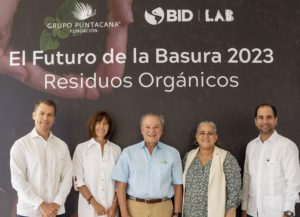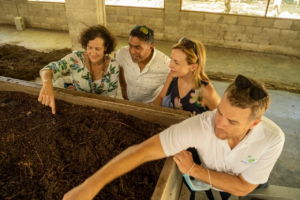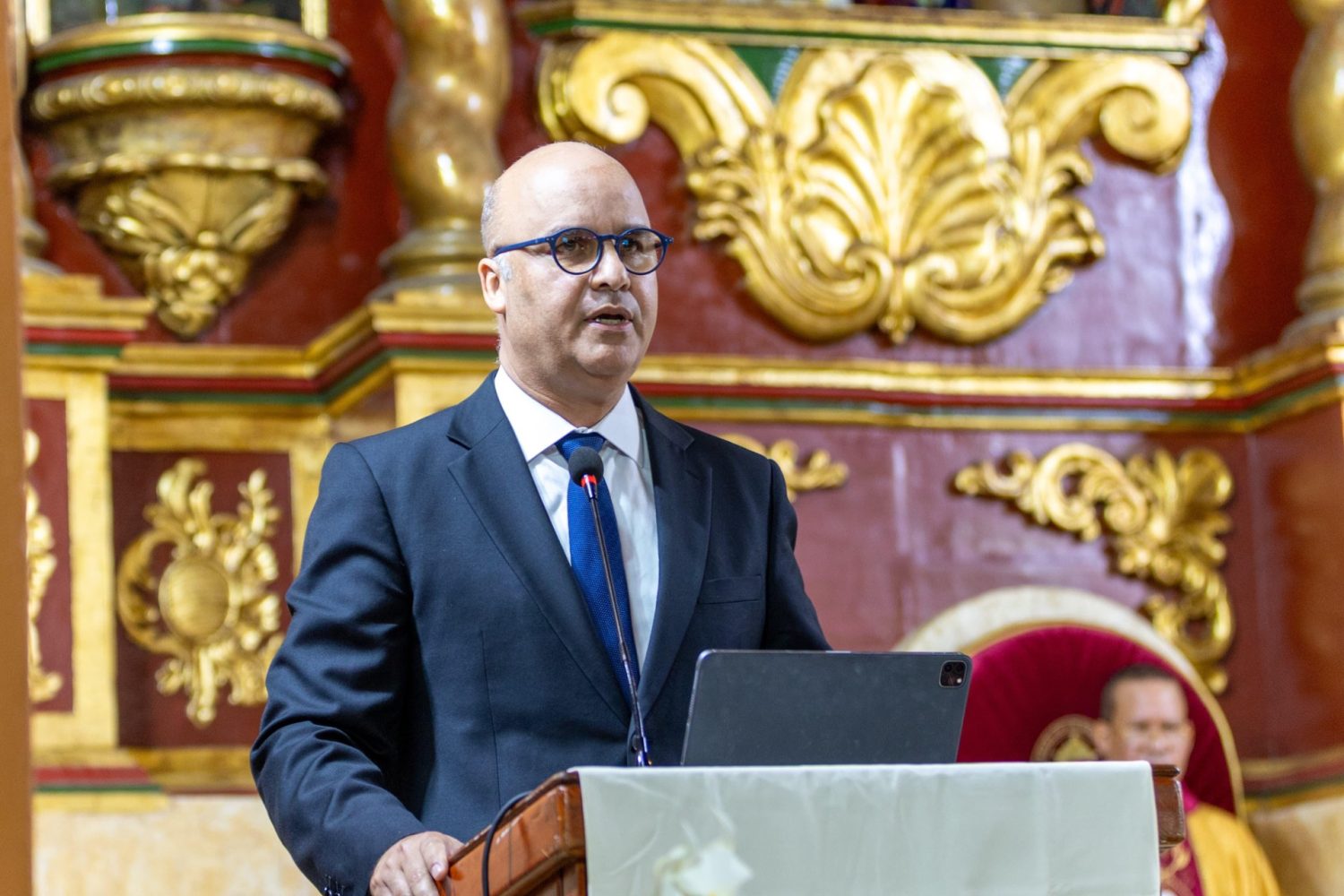Iberostar opens a coral laboratory to rescue the oceans

Built on the beachfront, the center operates under rigorous scientific standards, although it is open to guests, as part of the awareness and education tasks that Iberostar is promoting
On June 8, coinciding with the celebration of World Oceans Day, Grupo Iberostar inaugurated its new coral laboratory in the heart of the Caribbean. The laboratory has been conceived to contribute to the protection of marine life in the face of the global increase in temperatures and to defend the pandemic that is devastating coral reefs by leaps and bounds.
The disease that causes the loss of stony coral tissue (SCTLD) and whose first outbreak took place in Central Florida in 2014, left a ghostly trail of discolored coral reef remains and has already expanded to Mexico , the US Virgin Islands UU., St. Maarten and also to the Dominican Republic, where it arrived suddenly in the month of March.
Dr. Megan Morikawa, Director of Sustainability of Iberostar, marine biologist and Doctor in coral restoration, witnessed the appearance of this white underwater pest while finalizing, together with her team, the preparations for the new coral reef laboratory in the Republic Dominican Advancing at an unprecedented pace, Iberostar, together with the help of a group of members of the scientific community, the Dominican government and several NGOs, among others, finished the laboratory within a year, just when coral disease began to infect local reefs, eight months earlier than expected.
In the words of Dr. Morikawa: “We were not really aware at the beginning of the project, but we were building Noah’s Ark for coral reefs.”
The Coral Lab will initially house 10 species and 180 individual corals (most similar facilities only have a few species). Built on what worked as a space for yoga and on the seafront, the center operates under rigorous scientific standards, although it is open to hotel and visitor clients, as part of the awareness and education tasks that Iberostar is driving. The children, through the Star Camp entertainment program promoted by the chain, are also invited to visit it and turn the moment into a fun learning about the environment.
“This is a very necessary science in an unexpected place,” said Dr. Morikawa, adding that corals only represent 1% of the world’s surface, but contain about a third of the planet’s biological diversity.
The Coral Lab is the most recent effort that Iberostar has made in coastal health, as part of its Wave of Change movement, a triple initiative aimed at protecting the oceans and promoting responsible tourism, which includes:
Replace plastics in the 120 Iberostar hotels by 2020, reinventing each use, from drinking straws and coffee capsules to employee uniforms in an attempt to establish a circular economy.
Promote the responsible consumption of fish. Among other measures, Iberostar has reached an agreement with WWF, FishWise and local fish suppliers to assess the risk, responsibility and sustainability of the shopping basket. The goal is to offer products that do not harm the evolution of the species.
Improve coastal health, including the restoration of mangroves in the Dominican Republic, by bringing together a team of coastal conservation experts, including Dr. Morikawa and other scientists from Stanford University and UC Santa Barbara.
With a commitment that appeals not only to the 32,000 employees of the Group but also to the 8 million customers it receives every year, Iberostar has a unique power to inspire people and their industry counterparts with the aim of promoting a generalized change through its real and quantifiable commitment to the environment.
“As a family business that has been part of the community of the Dominican Republic for more than 25 years, we are establishing an increasingly responsible tourism model, which will leave a better legacy to the future generations of this country. We have to recognize this responsibility and continue taking bold measures, “declared Gloria Fluxà, Vice President and CSO (Chief Sustainability Officer) of Grupo Iberostar.
The Coral Lab will act as a refuge for the threatened coral reefs of the Caribbean. It is a genetic bank, protected against the increasingly devastating hurricanes on the high seas, where most reefs live. In addition, it extracts salt water from wells, not from the ocean, and thus protects it from powerful diseases and rapid proliferation, which affect corals, such as the SCTLD.
Among its features, the laboratory has four 1,200-liter tanks, another four with a capacity of 500 liters and four control systems that will allow researchers to accurately simulate future marine conditions. This will make it possible to develop heat-resistant strains of coral, which could one day replenish the weakened reefs that support entire populations of fish and protect coastal livelihoods.
In the words of Dr. Morikawa: “putting all this gear into operation in such fair terms and on solid ground was a Herculean effort that required innovation and collaboration. The Iberostar hotel staff collaborated in the construction and design. The Dominican government helped with the processing of permits. The design was consulted to a series of engineers and aquarists, and a company specialized in spa built the controls of the tanks “. And he continues: “Everyone was willing to do their bit. This offered us a wonderful local perspective. I would never have expected that we would be able to build a laboratory in a year, but we had no other choice, we ran out of time. “
Iberostar plans to open more facilities to protect coastal health in other locations in the next two years and build a series of nurseries on the high seas.
It should be noted that the laboratory was designed to provide customers and the local community with a unique and unforgettable oceanic experience on land and expose them to an environmental challenge that, otherwise, they could never face.
“I think the most important thing is that hotels can help protect our oceans in ways we did not really expect,” says Dr. Morikawa. “Paradoxically, we, as a scientific community, have spent years working on the creation of an economic argument in favor of saving coral reefs. What hooked Iberostar was simply their desire to protect them. “
Grupo Iberostar launched in 2017 the ambitious movement “Wave of Change”, designed in line with Objective 14 of the United Nations Sustainable Development Goals (SDG), “Underwater Life”, which works on three fundamental pillars: elimination of single-use plastics, the promotion of responsible consumption of fish and the improvement of coastal health.








